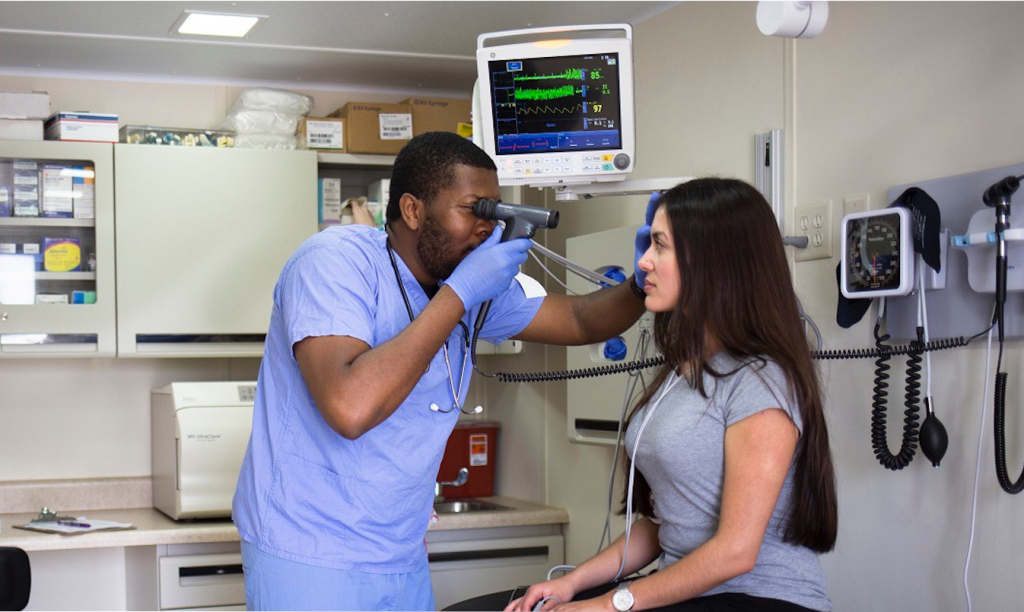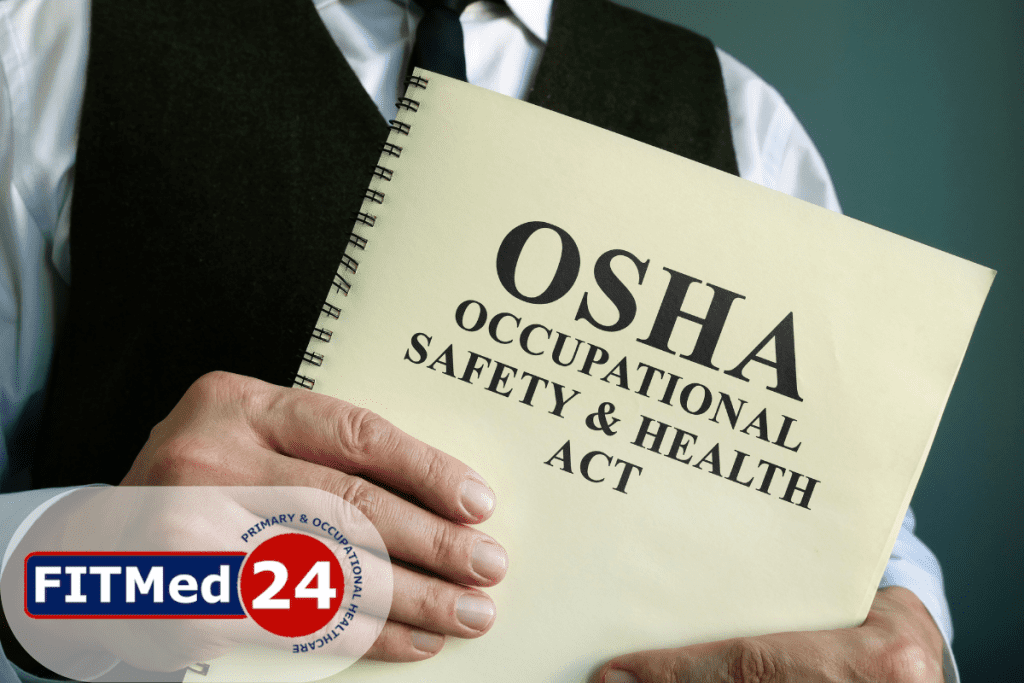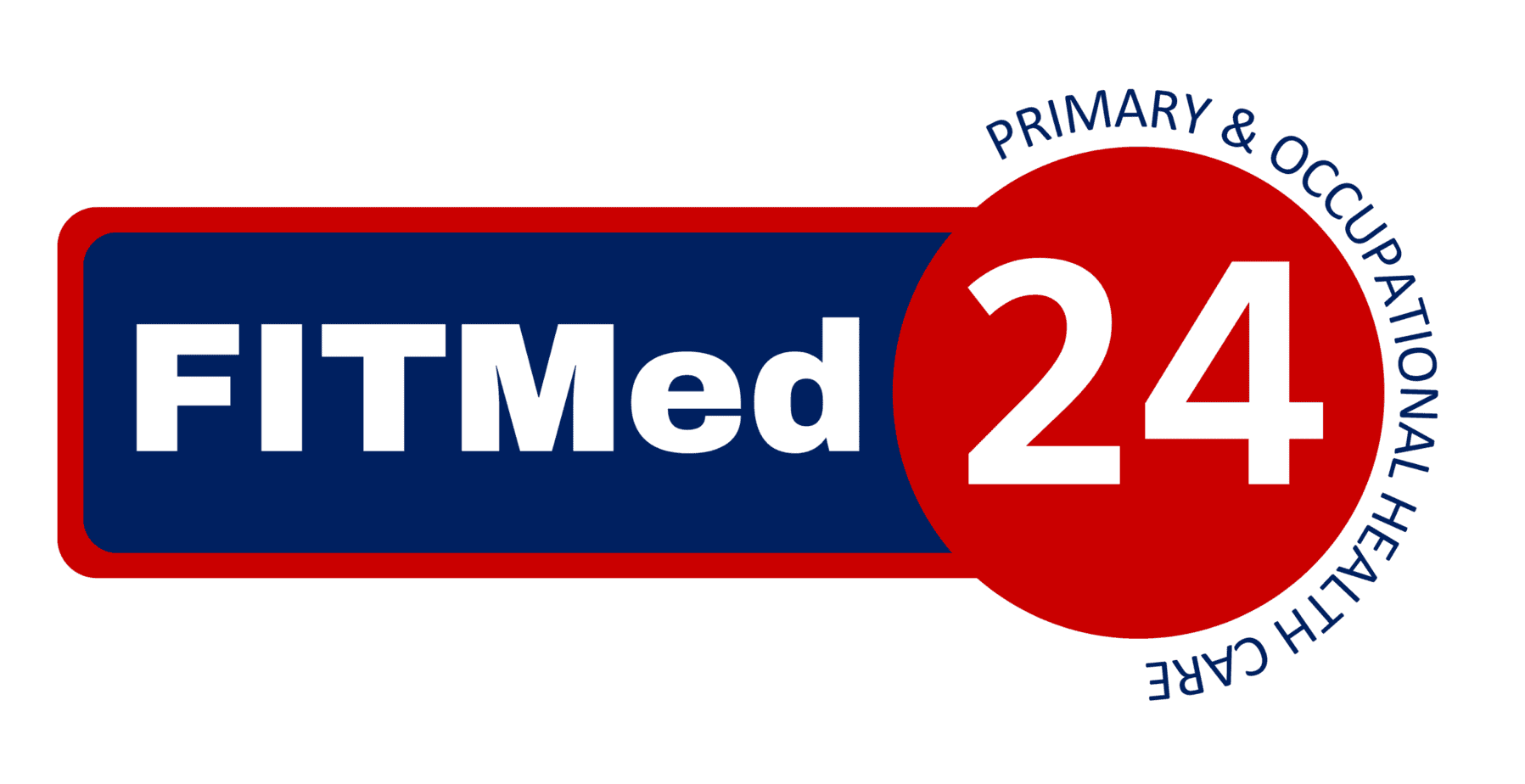Medicals we offer as part of our services
We at FITMed24 has been considered as a leading provider for occupational health and medical tests in the South African business environment, either in one of our clinics or utilising our mobile units onsite.
Mobile Medicals
Our fully functional Mobile Medical Unit extends our professional healthcare services beyond the clinic, covering all areas within a 350 km radius of Kempton Park. Designed for convenience and efficiency, the unit is equipped to perform a full range of occupational and compliance medical examinations directly at your worksite.


Health and Safety Training
At FitMed24, we specialise in Health and Safety Compliance Training designed for all industries — from construction and manufacturing to corporate, retail, and healthcare sectors. Our mission is to help organisations meet legal requirements, reduce workplace risks, and build a strong culture of safety and awareness.
Clinic Medicals
Our clinic is centrally located in Kempton Park Gauteng, with easy access from the R21 and major highways, providing a convenient solution for companies and employees throughout the region.
While we recommend scheduling appointments in advance for your workforce, we also accommodate walk-in visits, ensuring efficient turnaround times and professional service from our qualified healthcare team.

Why Occupational Health Is the Key to a Productive Workforce

Sickness in South Africa’s workforce is responsible for losses to our economy totalling billions every year. That said, the costly consequences of much of the illnesses and injuries responsible could actually be avoided. In fact, it was for just this purpose that the Department of Labour introduced the legislation entrenched in the Occupational Health and Safety Act of 1993. Basically, the act requires employers, in close collaboration with their employees, to implement whatever measures may be necessary to create and to maintain a workplace that is safe and which poses no risk to the health of the staff.
This, however, is a task for which most employers do not have the necessary knowledge and experience, so the government also introduced special training courses to remedy this shortfall. While the training is open to the nation’s employers and their staff, many companies prefer to allocate all or part of the responsibility for matters concerning occupational health and safety to suitably qualified third parties.
It is the responsibility of companies to provide safe working condition and for assistance, they will frequently recruit the technical expertise of those trained in the field of industrial hygiene. As the title suggests, their role is a form of cleansing. They locate and evaluate the potential risks associated with workplace hazards and recommend remedial measures. Their effectiveness can be reviewed by government inspectors at any time. In parallel, medical examinations designed for all at-risk workers may be undertaken by doctors, nurses, and other qualified medical professionals with a specialist qualification in the field of occupational health.
The content of these medicals varies according to the nature of the job and the potential hazards it may hold. For example, the composition of an examination recommended for an underground worker in the mining industry will differ in its scope from that considered appropriate for an airline pilot. For construction workers, and particularly those required to work at height, the content will differ yet again.
Work-related illness is not always accompanied by visible symptoms and workers can be unfit to perform their duties while appearing healthy. Often it is only an occupational-health medical examination that will reveal this. Those required to drive vehicles, often for long distances, are a classic example. Statistics in South Africa suggest that a third of all road accidents involve people who drive for a living and, in many cases, they are due to health issues arising directly from the demands of the job. Much the same risks also apply to those who operate heavy construction vehicles and machinery.
Whether on the open road or the factory floor, the safety of workers and those around them depends as much on their physical ability to perform effectively as on the knowledge and skill required. An occupational-health specialist has undergone the training required to detect what a family doctor might not. Job-related examinations conducted by these specialists may include assessment of musculoskeletal function, spirometry, audiometry, vision and colour-vision tests, blood-pressure measurements, urinalysis, and eve mental-health assessment.
In addition, FITMed24, one of South Africa’s leading occupational-health services providers, operates workplace-wellness days that combine health advice with less comprehensive testing, including cholesterol, glucose and vision screening, blood pressure, pulse, and BMI measurement.


